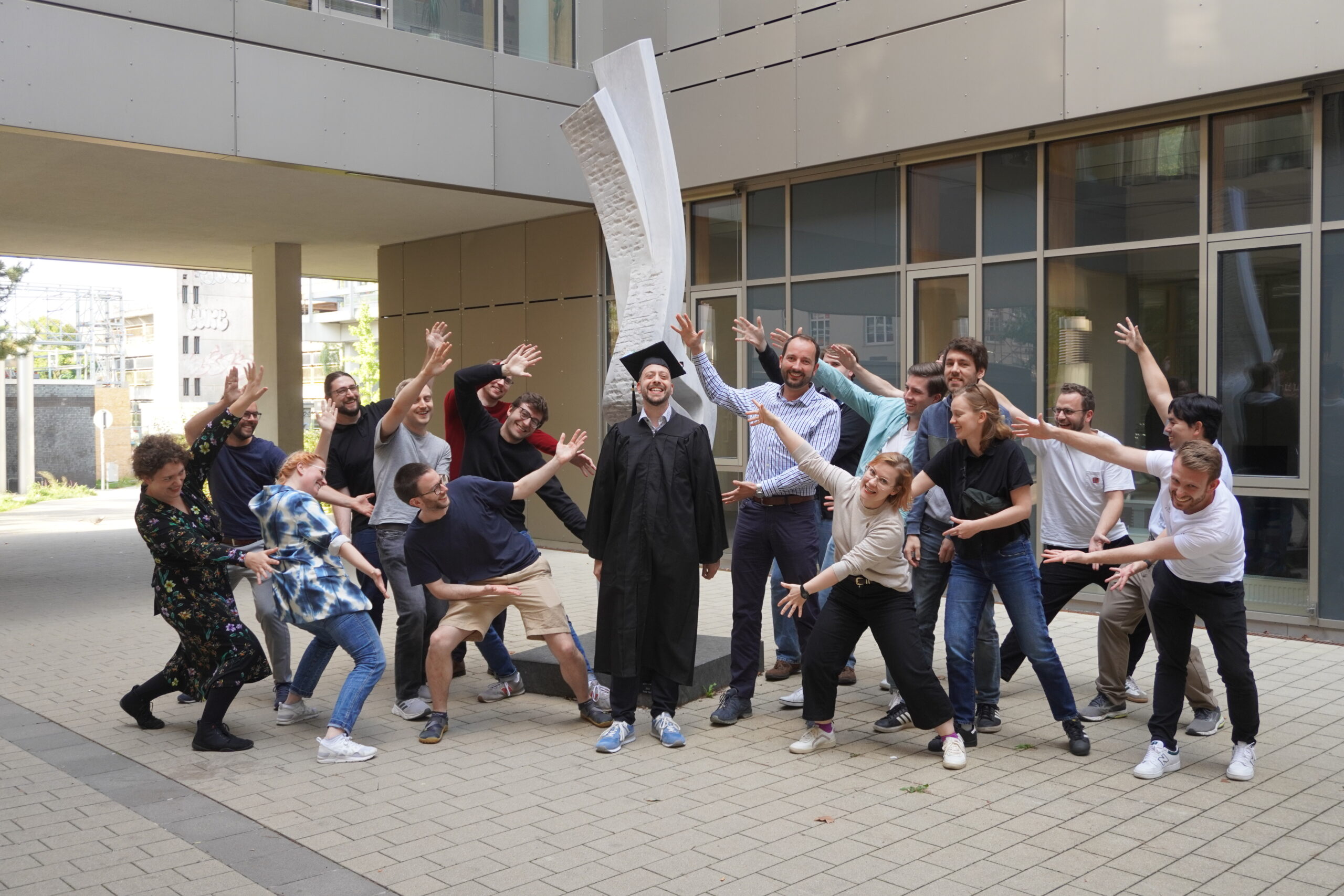In crises, people naturally self-organize by helping in their communities, volunteering, or working with professionals. Technology plays a crucial role in crisis management and volunteering, with tools like social media and specialized software, such as COVID tracing apps, facilitating collaboration. The PhD thesis of Steffen Haesler explores how individuals spontaneously volunteer during crises, utilizing both familiar and new technologies for disaster response. It addresses the challenge of technological dependence when ICT infrastructure fails or becomes overloaded during crises. The focus is on designing resilient, user-friendly technology aligned with people’s mental models and capabilities.
Beyond traditional crisis support, the thesis examines caregiving and mental health needs, employing quantitative and qualitative methods, human-centred design principles, and user studies. The COVID-19 pandemic highlighted gaps in digitization and showcased innovative solutions from tech-savvy volunteers. Decentralized communication technologies like Disruption-Tolerant Networking (DTN) are proposed to enhance neighborhood resilience by reducing reliance on distant servers.
On Wednesday, September 18, 2024, Steffen Haesler successfully defended his PhD thesis, marking the final milestone towards achieving his Dr. rer. nat. degree at the Department of Computer Science at Technical University of Darmstadt.
The entire PEASEC team extends its heartfelt congratulations to our new Dr. rer. nat. Steffen Haesler!
His dissertation was supervised by Prof. Dr. Dr. Christian Reuter, who also acted as first referee. Prof. Dr. Carman Neustaedter (Simon Fraser University, Canada) served as second referee. Prof. Prof. Dr.-Ing. Matthias Hollick (Secure Mobile Networks) and Prof. Dr. Jan Gugenheimer (Human-Computer Interaction) joined the examination committee.
Citizens in Crises: Behavior, Dependencies, and Technological Support of Digital Self-Organization
In times of crisis, individuals spontaneously engage in various forms of self-organization, whether within their neighborhoods, by volunteering, or alongside professional responders. Technology is established in crisis volunteering and management, with people using tools to collaborate, such as social media or integrating new software for disaster response, exemplified by COVID tracing apps. However, this dependence on technology hinders reliable digital actions because of common disruptions or overload of information and communication technology (ICT) infrastructure during crises.
This thesis addresses digitized crisis handling of individuals regarding resilience, usability, and social integration by supporting decentralized concepts of connectivity. It explains why neighborhoods are important as a cell of self-organization, how to integrate public warnings in smart homes to create an environment of resilience locally, and how volunteering encapsulates digital actions. As people are vulnerable in a crisis and have limited mental capacities, it is not only about the resilience of used tools but also about having a human-centered perspective on technology by ensuring usability and acceptance through integrity, integrating social structures, and trust.
Findings show that decentralized communication protocols can uphold collaboration during disruptions and have advantages within the scope of neighborhoods, which match both technical dependencies of protocols like disruption-tolerant networks (DTN) and established social behavior of digital self-organization in crises. Complementary smart homes have the potential to enhance resilience further by not only integrating public warning messages but also allowing for automation as a direct crisis reaction. The works conducted during the COVID-19 pandemic demonstrate how volunteers from the tech community introduce innovative solutions to mitigate crisis effects. Harnessing the technological expertise within civil society is a vital aspect of crisis volunteering that should be supported. Based on these findings, a human-centered design approach suggests a resilient neighborhood environment that empowers and supports self-organization. Overall, this thesis advocates for the central role of digital resilience as a holistic concept surrounding citizens.

Selected Publications within the PhD thesis:
Crisis Volunteering Nerds: Three Months After COVID-19 Hackathon #WirVsVirus
22nd International Conference on Human-Computer Interaction with Mobile Devices and Services.
doi:10.1145/3406324.3424584
[Download PDF]
Stronger Together: How Neighborhood Groups Build up a Virtual Network during the COVID-19 Pandemic
Proceedings of the ACM on Human-Computer Interaction, 5(CSCW2).
doi:10.1145/3476045
[Download PDF]
Connected Self-Organized Citizens in Crises: An Interdisciplinary Resilience Concept for Neighborhoods
Companion Publication of the 2021 Conference on Computer Supported Cooperative Work and Social Computing, pp. 62–66.
doi:10.1145/3462204.3481749
[Download PDF]
Detecting a Crisis: Comparison of Self-Reported vs. Automated Internet Outage Measuring Methods
In: K. Marky, U. Grünefeld, & T. Kosch (Eds.), Mensch und Computer 2022 – Workshopband. Gesellschaft für Informatik e.V.
doi:10.18420/muc2022-mci-ws10-321
[Download PDF]
FIDO2 to the Rescue? Platform vs. Roaming Authentication on Smartphones
Proceedings of the 2023 CHI Conference on Human Factors in Computing Systems. (Best Paper Award)
doi:10.1145/3544548.3580993
[Download PDF]
Getting the Residents’ Attention: The Perception of Warning Channels in Smart Home Warning Systems
Designing Interactive Systems Conference.
doi:10.1145/3563657.3596076
[Download PDF]
Sounds Good? Fast and Secure Contact Exchange in Groups
Proceedings of the ACM on Human-Computer Interaction, 8(CSCW2).
doi:10.1145/3686964
[Download PDF]
Is It There Yet? New UI Elements Help Understanding Dynamic Peer-to-Peer Messenger Communication in Crisis Situations
Proceedings of the ACM on Human-Computer Interaction [In review / revision].
The House That Saves Me? Assessing the Role of Smart Home Automation in Warning Scenarios
Proceedings of the ACM on Interactive, Mobile, Wearable and Ubiquitous Technologies [In review / revision].
How to Stay Connected: Citizens’ Needs on Digital Self-Organization in Neighborhoods During a Crisis
Proceedings of the ACM on Human-Computer Interaction [In review / revision].
Projects:


